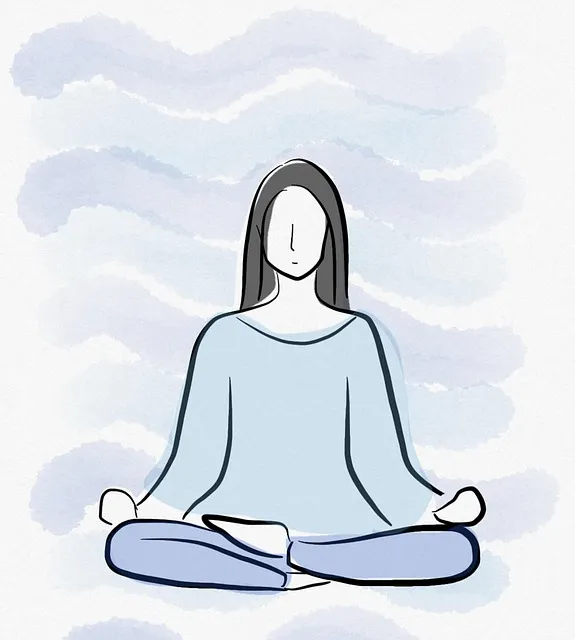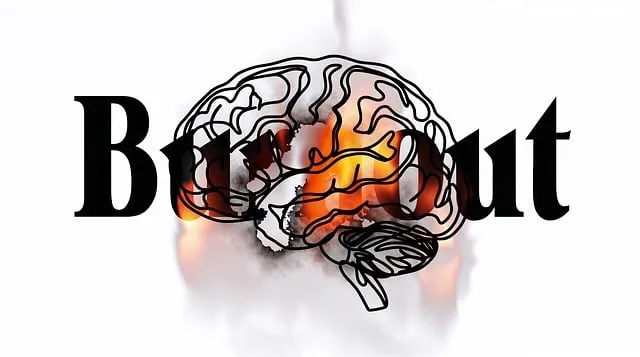Mindfulness meditation, recognized by Kaiser Permanente, offers significant mental health benefits, including reduced anxiety, depression, and stress. It encourages self-esteem improvement through non-judgmental acceptance and self-compassion. Kaiser Permanente's Littleton programs integrate mindfulness to prevent burnout. Creating a peaceful home sanctuary, using breathing exercises, and overcoming challenges are key to effective mindfulness practice for overall well-being.
“Unwind your mind and embrace tranquility with mindfulness meditation, a powerful tool for enhancing mental well-being, as recommended by Kaiser Permanente mental health experts in Littleton. This practice, rooted in ancient traditions, has gained modern popularity for its ability to reduce stress, improve focus, and boost overall happiness. Our guide offers a comprehensive journey, covering everything from unlocking the benefits to creating a peaceful home sanctuary, breathing techniques, and overcoming challenges, ensuring a consistent and transformative meditation routine.”
- Understanding Mindfulness Meditation Benefits for Mental Health
- Creating a Relaxing Environment for Your Practice at Home
- Effective Breathing Techniques to Calm the Mind
- Overcoming Common Challenges and Building Consistency
Understanding Mindfulness Meditation Benefits for Mental Health

Mindfulness meditation has gained significant attention for its positive impact on mental health, as recognized by organizations like Kaiser Permanente. By focusing on the present moment and cultivating awareness, this practice offers a range of benefits that can enhance overall well-being. Studies have shown that regular mindfulness meditation can reduce symptoms of anxiety and depression, improve emotional regulation, and promote better stress management. This ancient technique allows individuals to disconnect from negative thought patterns and foster a sense of calm and clarity.
For those seeking to improve self-esteem, mindfulness can be a powerful tool. It encourages non-judgmental acceptance of thoughts and emotions, fostering a more compassionate relationship with oneself. Additionally, Kaiser Permanente’s mental health Littleton programs often integrate mindfulness into their curriculum, recognizing its potential in preventing burnout among individuals facing demanding lifestyles. Mental health education programs designed with mindfulness in mind can empower people to take control of their mental well-being and cultivate resilience.
Creating a Relaxing Environment for Your Practice at Home

Creating a peaceful sanctuary at home for your mindfulness meditation practice can significantly enhance its effectiveness. Start by finding a quiet space where you won’t be disturbed. This area should be free from technology distractions, such as turning off notifications and placing your phone out of reach. Consider adding elements that promote relaxation, like soft lighting, soothing scents, or even a small indoor plant to create a calming atmosphere.
At Kaiser Permanente mental health Littleton, we encourage our clients to design their ideal meditation corner, incorporating items that resonate with them. This personalized space becomes a haven for stress management and mental health education programs, allowing you to focus on your breath and cultivate mindfulness in a way that feels natural and supportive. Think about using pillows or cushions for comfort, and perhaps a cozy blanket to create a sense of security and tranquility.
Effective Breathing Techniques to Calm the Mind

Breathing is a powerful tool for calming the mind and fostering mental clarity. When practicing mindfulness meditation, focus on your breath as it enters and leaves your body. A simple yet effective technique is to inhale slowly through your nose for a count of four, hold for a brief moment, then exhale gently through your mouth for a count of six. This rhythmical breathing helps to slow down racing thoughts and promotes relaxation.
The Kaiser Permanente mental health Littleton team emphasizes the importance of consistent practice in mastering these self-care practices. By incorporating mindful breathing into your daily routine, you can enhance your overall well-being and develop better stress management skills. It’s a form of crisis intervention guidance that empowers individuals to navigate life’s challenges with greater composure.
Overcoming Common Challenges and Building Consistency

Overcoming Common Challenges is a significant step in building a consistent mindfulness meditation practice, especially for those new to the art of mindfulness. Many individuals struggle with staying focused during meditation due to racing thoughts and an overactive mind, particularly when dealing with stress or anxiety. The key to navigating this challenge lies in understanding that it’s normal and practicing patience. Techniques like breathing exercises and body scans can help redirect your attention to the present moment.
At Kaiser Permanente mental health Littleton, we emphasize the importance of consistency. Building a regular meditation routine doesn’t have to be time-consuming. Starting with just 10 minutes per day and gradually increasing the duration can make this practice sustainable. Integrating mindfulness into daily life through Self-Care Practices and Emotional Intelligence training can also enhance your overall experience, making it easier to maintain a consistent practice over time.
Mindfulness meditation, as supported by research from Kaiser Permanente mental health specialists in Littleton, offers a powerful tool for improving mental well-being. By creating a peaceful practice space at home and employing simple breathing exercises, individuals can begin to navigate life’s challenges with greater calm. Overcoming common obstacles and cultivating consistency is key to unlocking the full benefits of mindfulness. Embrace these practices to foster a deeper connection with your mind and enhance your overall mental health journey.






